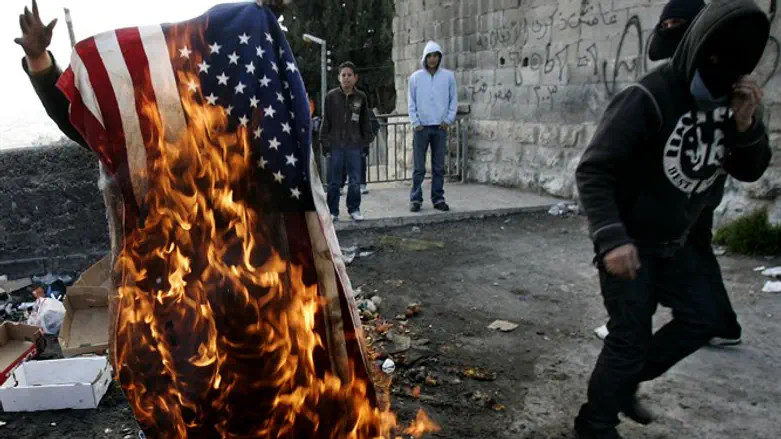
Frustration with the Palestine Liberation Organization (PLO) surfaced at a Conference in Istanbul on 25 and 26 February attended by 6000 Palestinian Arabs living abroad in more than 50 countries.
-the restructuring of the PLO on a more representative basis for all Palestinians, and
-the formation of a democratically elected Palestinian National Council - the PLO's legislative body in exile.
A member of Hamas’ politburo Izzat al-Rashq expressed support for the conference on behalf of Hamas - adding that “those who claim that Hamas is behind the conference are mistaken.”
No matter whose viewpoint one believes – the Conference is surely evidence that the Palestinian Arabs living abroad want to have a say in their own future and have formed an organization that will allow them to do so – because they consider that the PLO as presently structured is not meeting their aspirations.
Conference spokesman Said Ziyad al Aloul supports this conclusion: “We as Palestinian diaspora have the right to organize and tell the traditional Palestinian leaders what we think is the best way forward,"
,
Anees Fawzi Kassem - the head of the conference - said the Oslo Accords were the worst deal possible and had resulted in Palestinians being unable to represent Palestinians: ."We are gathered here today to demand that we the people of Palestine be given our voice back,"
Khalid Turaani, another spokesperson for the conference reportedly claimed: "It is high time that Palestinians come together to ensure that a weak donor-bondaged [PLO] doesn't give away any more of our legal historic and moral rights in Palestine,"
Kassem’s and Turanni’s sentiments will resonate with those Palestinian Arabs living under PLO rule whose voices have been silenced whilst being denied free, fair and transparent elections since 2006.
Negotiations between Israel and the PLO under the Oslo Accords were always destined to founder since the PLO Charter states that Israel, Gaza, the West Bank and Jordan are:
-An indivisible territorial unit and
-An indivisible part of the Arab homeland
-The 1917 Balfour Declaration, the 1922 Mandate for Palestine and everything based on them since then are null and void.
-Jews do not constitute a single nation with an identity of its own
-Jordan and Israel’s 1994 Peace Treaty rejected these PLO deal-breakers.
Oslo’s demise opens the possibility of Jordan and Israel redrawing their existing international boundary to mutually divide the 'West Bank' between their respective States.
President Trump should jump to seal the deal.